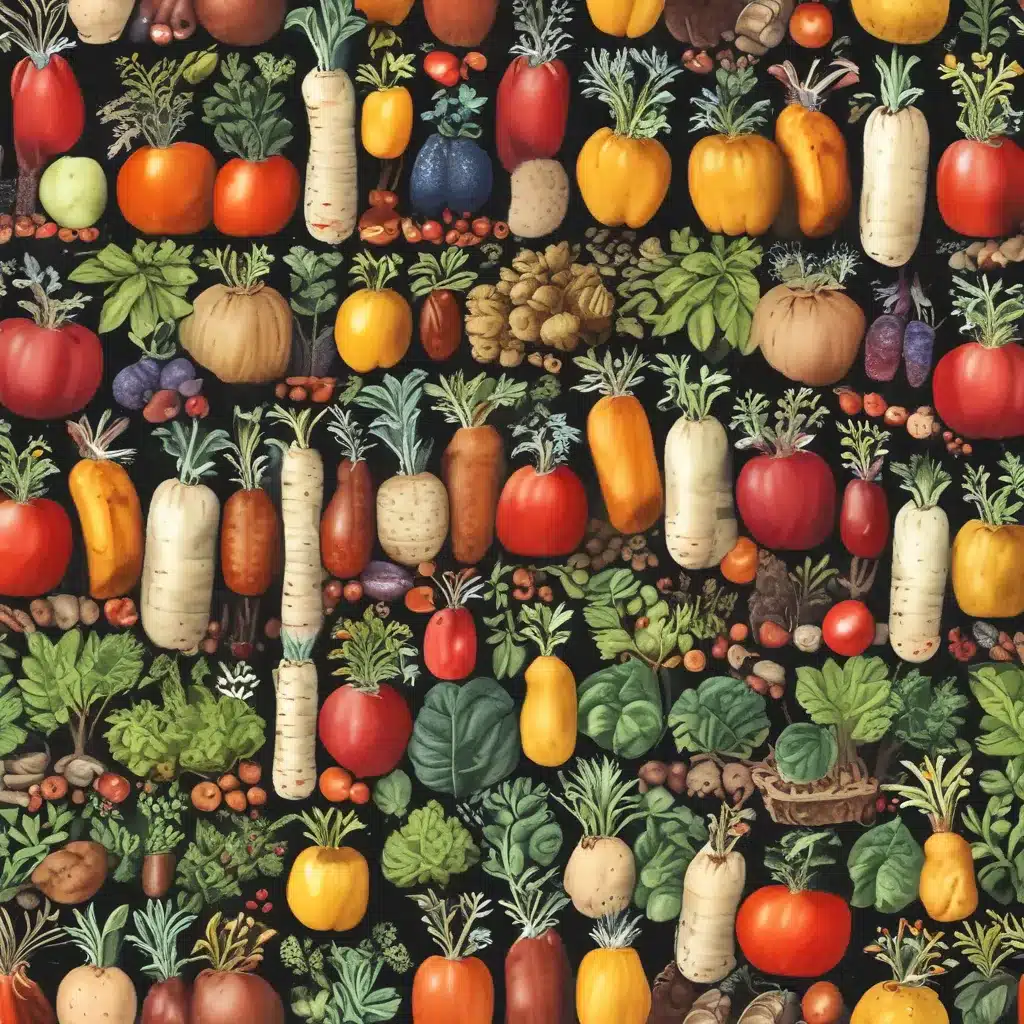
Reclaiming the Roots of Our Sustenance
As I step out into the crisp morning air, the dew-kissed leaves glisten like nature’s own gemstones. I can almost feel the heartbeat of the earth beneath my feet – a steady, ancient rhythm that has nourished humanity for millennia. It’s here, in this humble patch of land, that I’ve chosen to reconnect with the legacy of our agricultural forebears, to revive the heirloom practices that once sustained thriving communities.
You see, I’m on a mission to rediscover the lost art of homesteading, to unearth the treasures of traditional farming that have been overshadowed by the relentless march of industrialization. It’s a journey that has taken me from the bustling markets of the Fertile Crescent to the rolling hills of New England, and along the way, I’ve unearthed a trove of wisdom that I’m eager to share.
The Tragic Tale of Wheat’s Transformation
Let’s start with the humble grain that has been the staff of life for countless generations – wheat. As author Eli Rogosa of the Heritage Grain Conservancy eloquently describes, this once-majestic cereal has been transformed into a mere commodity, its nutritional and ecological value sacrificed on the altar of profit.
In the pursuit of higher yields and greater efficiency, industrial agriculture has stripped away the genetic diversity that once characterized our wheat fields. Gone are the robust, drought-resistant landrace varieties that nourished our ancestors, replaced by a monoculture of genetically modified strains that depend on a toxic cocktail of synthetic fertilizers and herbicides.
The consequences of this transformation are all too visible – from the alarming rise in gluten intolerance to the devastating impact on our soil, water, and environment. It’s a sobering tale, one that has spurred a growing movement to reclaim the heritage of our daily bread.
Reviving the Forgotten Grains
But where do we even begin? As the folks at Milk and Honey Ranch point out, the answer lies in the often-overlooked treasures of the past. Einkorn, emmer, and rare durums – these are the ancient grains that have not only withstood the test of time but also offer a wealth of untapped potential.
Take einkorn, for example, the delightful “first wheat” that nourished the Neolithic farmers of the Fertile Crescent. With its unique diploid gluten structure, this heirloom variety is a godsend for those struggling with modern wheat sensitivities. And then there’s emmer, the grain that sustained the civilizations of ancient Israel, Egypt, and Rome, with its perfect texture for pasta and flatbreads.
It’s a veritable treasure trove of biodiversity, waiting to be rediscovered and reintegrated into our modern agriculture. And as Jacqueline and Randy of Deliberate Owl can attest, the journey of restoring these heritage grains is one filled with both challenges and profound rewards.
Cultivating a Resilient Future
But it’s not just about the grains themselves – it’s about the entire ecosystem that supports them. At Thorn Apple CSA, we’ve embraced the principles of heirloom homesteading, weaving together a tapestry of traditional farming practices that foster biodiversity, soil health, and community resilience.
From the careful curation of our seed banks to the meticulous management of our no-till fields, every decision we make is guided by a deep respect for the natural rhythms of the land. We’ve even rediscovered the lost arts of threshing and milling, ensuring that each loaf of bread or batch of beer is imbued with the flavor and nutrition of our heirloom grains.
And it’s not just about the produce we grow – it’s about the relationships we cultivate. By inviting our community to join us in this heirloom homesteading journey, we’ve witnessed the power of collective action, as neighbors come together to share knowledge, skills, and the bounty of the harvest.
The Road Ahead
As I gaze out over our verdant fields, I can’t help but feel a deep sense of wonder and gratitude. The path we’ve chosen is not an easy one, but it is one that holds the promise of a more sustainable, nourishing future.
Through our work at Thorn Apple CSA, we’re not just growing crops – we’re cultivating a deep connection to the land, to our history, and to each other. It’s a tapestry of resilience, woven with the threads of ancient wisdom and modern innovation, and I invite you to join us in this transformative journey.
So let’s roll up our sleeves, get our hands dirty, and rediscover the joy of heirloom homesteading. Together, we can reclaim the roots of our sustenance, one grain at a time.



